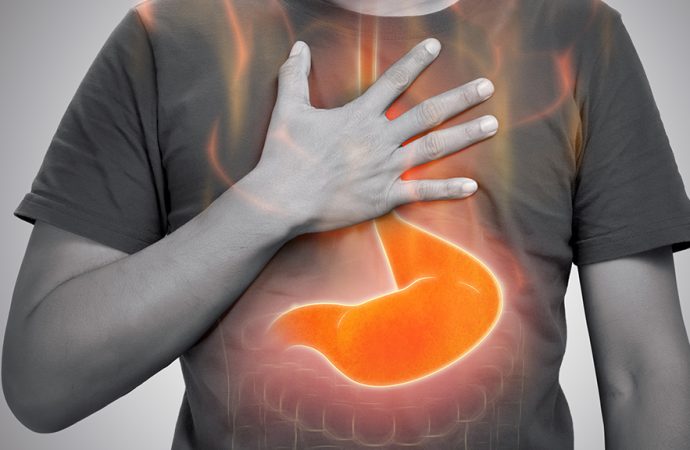Introduction Heartburn is more than just a burning feeling in your chest after a heavy meal. For some people, it’s a regular problem that affects daily life. Gastroesophageal Reflux Disease, or GERD, happens when stomach acid frequently flows back into the esophagus. This backflow irritates the lining and causes symptoms like burning discomfort, sour taste
Introduction
Heartburn is more than just a burning feeling in your chest after a heavy meal. For some people, it’s a regular problem that affects daily life. Gastroesophageal Reflux Disease, or GERD, happens when stomach acid frequently flows back into the esophagus. This backflow irritates the lining and causes symptoms like burning discomfort, sour taste in the mouth, or even trouble swallowing.
Living with GERD can be frustrating, but it’s possible to reduce symptoms and improve quality of life through lifestyle changes, diet adjustments, and proper care. This article will guide you through practical ways to manage acid reflux and heartburn effectively.
Understanding GERD and Its Causes
GERD occurs when the lower esophageal sphincter, a muscle at the bottom of the esophagus, doesn’t close properly. This allows acid to escape from the stomach into the esophagus. While occasional reflux is common, frequent episodes can lead to more serious health issues.
Common causes include eating large meals, lying down soon after eating, being overweight, smoking, pregnancy, and certain medications. Foods like spicy dishes, citrus fruits, chocolate, and coffee can also trigger symptoms. Identifying your triggers is the first step to controlling GERD.
Recognizing the Symptoms of GERD
GERD symptoms can vary in intensity, but the most common include:
- Burning sensation in the chest, especially after eating or at night
- Sour or bitter taste in the mouth
- Difficulty swallowing
- Chronic cough or throat irritation
- Feeling like food is stuck in the throat
If symptoms occur more than twice a week or interfere with daily life, it’s important to seek medical advice. Untreated GERD can lead to complications like inflammation, ulcers, or even precancerous changes in the esophagus.
Dietary Changes to Reduce Acid Reflux

Image by: Yandex.com
What you eat plays a major role in controlling GERD symptoms. Making smart food choices can help reduce acid production and prevent reflux episodes.
- Eat smaller meals: Large meals put pressure on the stomach, increasing the chance of acid escaping into the esophagus.
- Avoid trigger foods: Common triggers include fried foods, spicy dishes, citrus fruits, tomatoes, garlic, onions, chocolate, caffeine, and carbonated drinks.
- Increase alkaline and low-acid foods: Bananas, melons, oatmeal, whole grains, lean proteins, and green vegetables are gentle on the stomach.
- Stay upright after meals: Give your body at least 2–3 hours to digest before lying down.
Lifestyle Adjustments to Control GERD
Beyond diet, certain lifestyle habits can make a big difference in managing acid reflux and heartburn.
- Maintain a healthy weight: Excess weight puts pressure on the stomach, which can push acid into the esophagus.
- Avoid tight clothing: Tight belts and waistbands can worsen reflux by squeezing the stomach.
- Quit smoking: Smoking weakens the esophageal sphincter, making it easier for acid to flow upward.
- Limit alcohol: Alcohol can irritate the esophagus and relax the muscle that prevents reflux.
- Elevate the head while sleeping: Using extra pillows or a wedge can help prevent acid from flowing back at night.
Managing Stress to Reduce GERD Symptoms
Stress doesn’t directly cause GERD, but it can make symptoms worse. When you’re stressed, your digestion slows down, and your body may produce more stomach acid.
Techniques like deep breathing, yoga, meditation, or even light walking can help manage stress levels. Regular exercise, done in moderation, also supports better digestion and overall health.
Medications and Medical Treatments for GERD
If lifestyle and diet changes aren’t enough, medications may be needed. Common options include:
- Antacids: Provide quick relief by neutralizing stomach acid.
- H2 blockers: Reduce acid production for longer-lasting relief.
- Proton pump inhibitors (PPIs): Stronger acid reducers often used for persistent symptoms.
In severe cases, surgical options may be recommended, such as tightening the lower esophageal sphincter to prevent acid reflux. Always consult a doctor before starting or changing any medication.
Preventing Nighttime Heartburn
Nighttime reflux can be especially uncomfortable and may disrupt sleep. To reduce the risk:
- Avoid eating 3 hours before bedtime
- Sleep on your left side to reduce acid flow
- Keep your bedroom cool and stress-free
- Use a wedge pillow or elevate your bed slightly at the head
These changes can help prevent acid from moving upward while you rest.
When to See a Doctor
Occasional heartburn is common, but frequent or severe symptoms require medical attention. Seek professional help if you experience:
- Difficulty swallowing or persistent throat irritation
- Unexplained weight loss
- Chest pain that may be mistaken for heart issues
- Vomiting blood or black stools
Early treatment helps prevent long-term complications and improves your quality of life.
Conclusion
GERD can be a long-term challenge, but it’s manageable with the right approach. By identifying food triggers, making lifestyle adjustments, reducing stress, and seeking proper medical care, you can greatly reduce acid reflux and heartburn symptoms. Consistency is key—small daily habits can make a big difference in your digestive health. Protect your esophagus, improve your comfort, and enjoy a better quality of life by taking proactive steps against GERD.

















Leave a Comment
Your email address will not be published. Required fields are marked with *